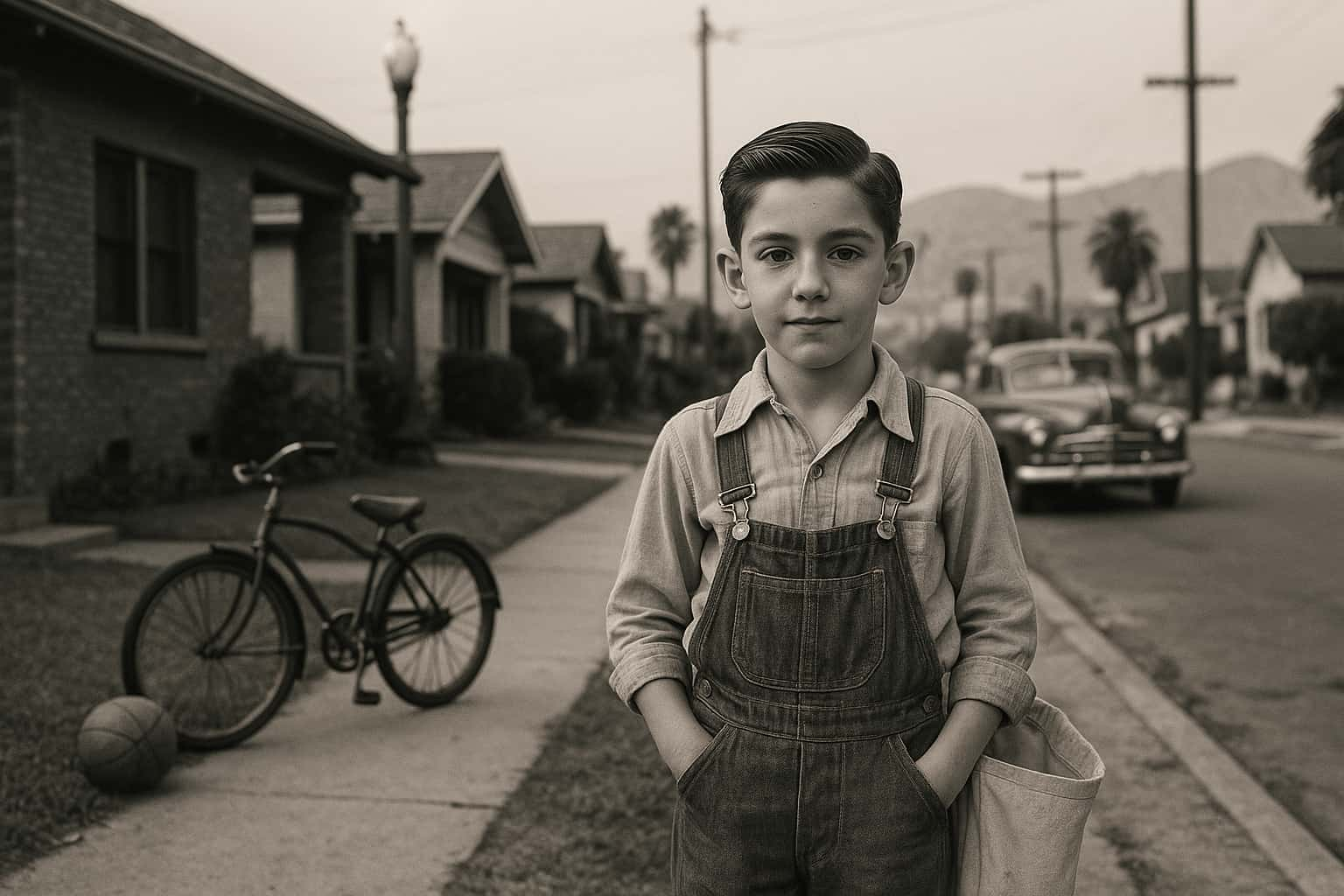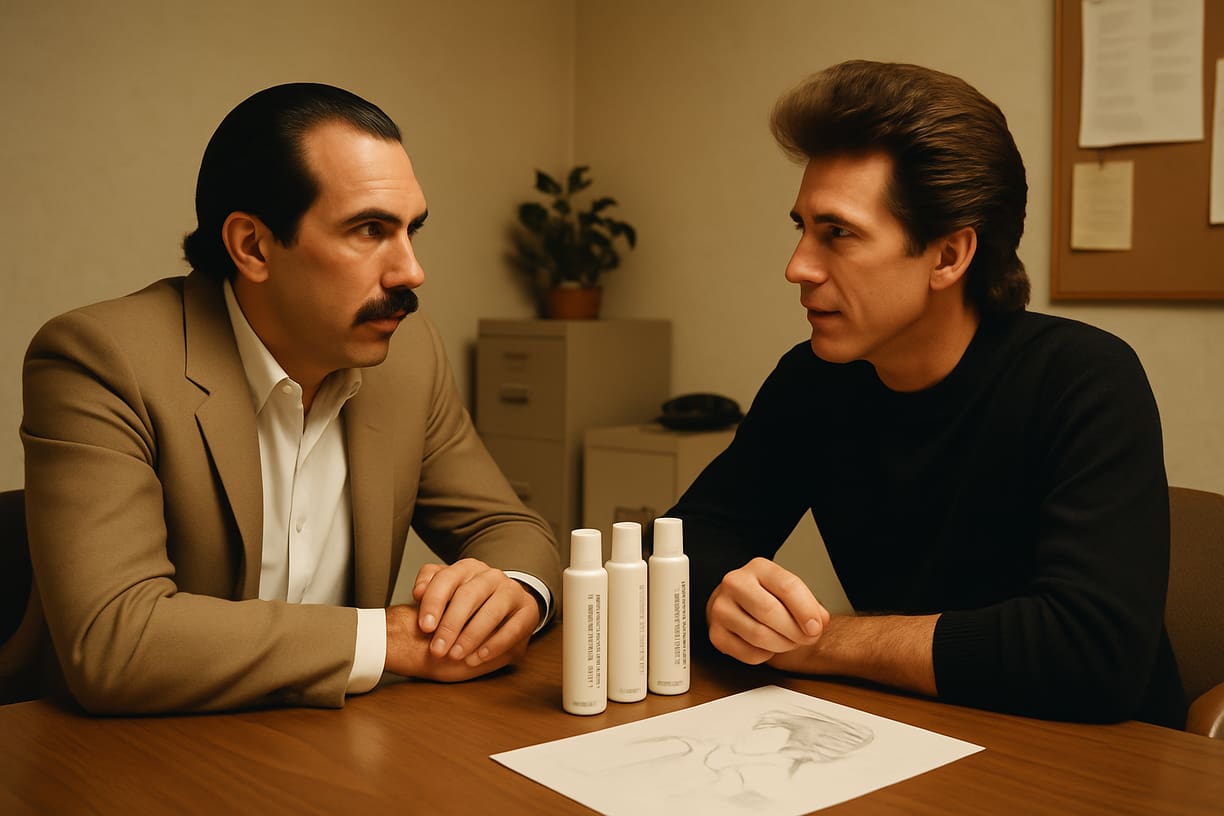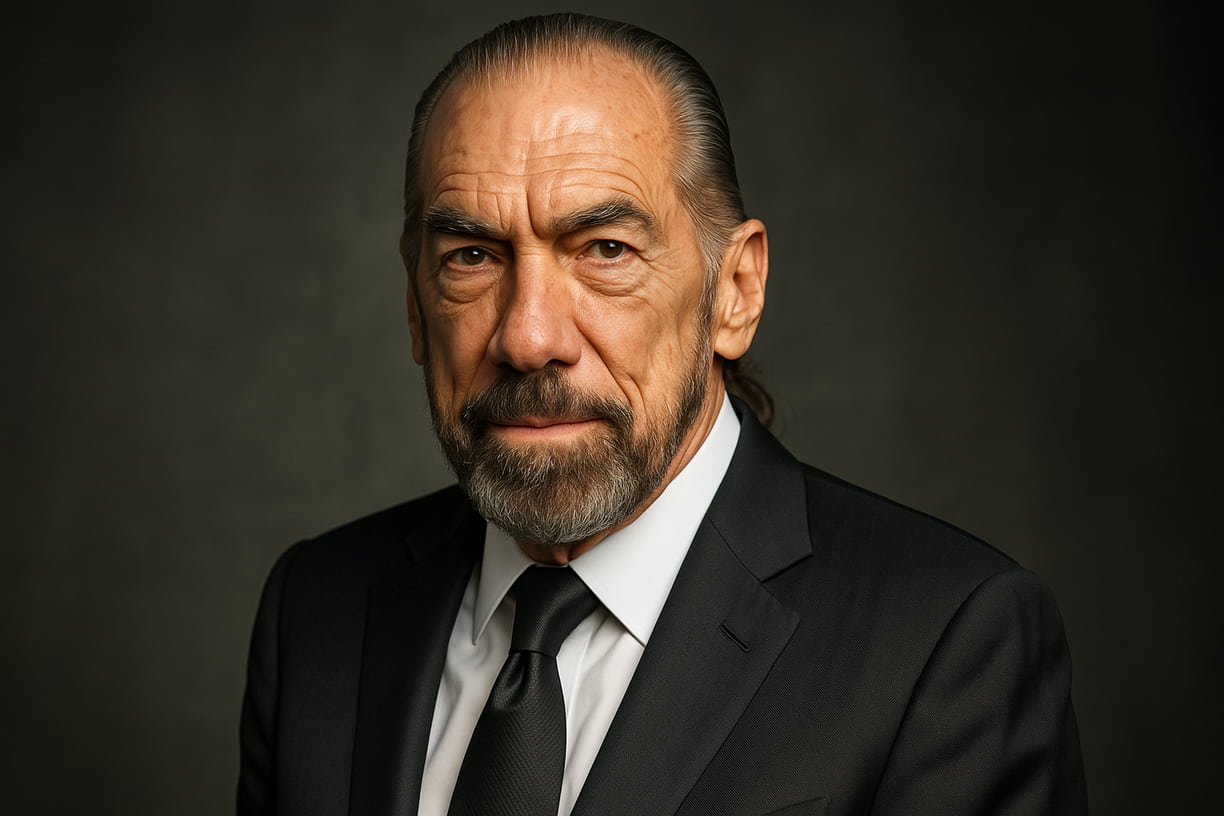Table of contents
John Paul DeJoria stands as one of America’s most inspiring examples of the rags-to-riches dream. Born into poverty and facing homelessness twice in his life, this Italian-Greek immigrant’s son transformed $700 into a multi-billion-dollar empire. His story proves that determination, vision, and an unwavering commitment to helping others can overcome any obstacle.
Today, DeJoria’s name graces two iconic global brands: Paul Mitchell hair products and Patrón Tequila. But his path to success was anything but smooth. From selling Christmas cards at age nine to sleeping in his car while building his first company, DeJoria’s journey embodies the true spirit of entrepreneurship.
Early Life & Struggles

Growing up in the Echo Park neighborhood of downtown Los Angeles, DeJoria learned about hardship early. His Italian immigrant father and Greek immigrant mother divorced when he was just two years old. The family’s financial struggles became so severe that his single mother could no longer support both children.
At age two, DeJoria and his older brother were sent to an East Los Angeles foster home. They stayed there during weekdays until he turned nine, returning to their mother only on weekends. This early separation from family would shape his understanding of struggle and resilience. The foster care system in 1940s Los Angeles was far from ideal, with overcrowded facilities and limited resources.
Living in foster care taught DeJoria valuable lessons about self-reliance and adaptability. He learned to navigate different environments and personalities, skills that would prove invaluable in his later business dealings. The experience also instilled in him a deep empathy for children in difficult circumstances.
When DeJoria returned to live with his mother at nine, the family’s financial situation remained dire. He began working immediately, selling Christmas cards and newspapers door-to-door with his older brother. Every penny they earned went toward supporting the family. These early sales experiences taught him about rejection, persistence, and the importance of believing in what you’re selling.
The door-to-door sales work was grueling for a child. DeJoria would walk miles through Los Angeles neighborhoods, knocking on doors and facing rejection after rejection. Many people slammed doors in his face or dismissed him rudely. But he learned to maintain his enthusiasm and keep trying, lessons that would serve him well decades later.
“Between us, we have only 27 cents, but we have food in the refrigerator, we have our little garden out back, and we’re happy, so we are rich,” his mother once told him during those difficult times. This perspective on wealth and happiness would later influence his business philosophy and philanthropic approach. His mother’s wisdom about finding richness in simple things became a cornerstone of his worldview.
The small garden his mother mentioned provided both food and hope during their darkest financial periods. DeJoria learned to appreciate the value of growing your own food and the satisfaction of creating something from nothing. This connection to the earth would later influence his environmental philanthropy and sustainable business practices.
Education provided some stability in DeJoria’s chaotic childhood. He attended John Marshall High School in Los Angeles, though academic pursuits took a backseat to survival. The constant need to work and contribute to the family income meant that traditional teenage experiences were luxuries he couldn’t afford. While other students worried about homework and social activities, DeJoria focused on earning money for his family.
Despite the challenges, DeJoria found ways to excel in school when possible. Teachers noticed his determination and work ethic, even when his attendance was sporadic due to work obligations. He developed strong communication skills through his sales work and learned to connect with people from all walks of life.
After high school, DeJoria enlisted in the United States Navy, serving two years aboard the USS Hornet. Military service offered structure and purpose, but it was only a temporary respite from the challenges that awaited him in civilian life. The Navy taught him discipline, teamwork, and leadership skills that would prove essential in his entrepreneurial journey.
Aboard the USS Hornet, DeJoria learned about different cultures and perspectives as the ship traveled to various ports. This exposure to diversity would later influence his inclusive approach to business and his global philanthropic efforts. The military also taught him the importance of following through on commitments and maintaining high standards under pressure.
Turning Points

Returning from military service, DeJoria faced the harsh reality of building a career without connections or resources. He took whatever work he could find: janitor, door-to-door encyclopedia salesman, insurance salesman. Each job taught him valuable lessons about persistence, rejection, and human nature. The transition from military structure to civilian uncertainty proved challenging for the young veteran.
Working as a janitor taught DeJoria humility and the value of honest work. He learned that no job was beneath him if it helped him survive and support his family. The experience also gave him insight into how businesses operated from the ground up, observing management decisions and employee dynamics from a unique perspective.
His stint as a door-to-door encyclopedia salesman proved particularly formative. This job required him to convince strangers to invest in expensive educational materials during brief doorstep conversations. The rejection rate was brutal—most people said no immediately. But DeJoria learned to read people quickly, adapt his approach, and find the few customers who genuinely needed what he was selling.
The insurance sales position taught him about long-term relationship building and the importance of trust in business transactions. Insurance customers needed to believe in both the product and the salesperson before making significant financial commitments. DeJoria developed skills in explaining complex concepts simply and building confidence in uncertain prospects.
His first encounter with the beauty industry came through an entry-level position at Redken Laboratories. Despite his enthusiasm and work ethic, he was fired from this position. This setback could have discouraged him, but instead, it sparked his determination to succeed in the hair care business on his own terms. The firing taught him that sometimes rejection redirects you toward better opportunities.
At Redken, DeJoria observed the professional beauty industry’s potential and limitations. He saw how salon owners struggled with product quality and customer service from suppliers. He noticed gaps in the market where innovative products could make real differences for working stylists. Most importantly, he learned the technical aspects of hair care chemistry and product development.
During this period, DeJoria experienced homelessness for the first time. As a young father in his early twenties, he found himself unable to pay rent. He and his infant son were evicted from their apartment and forced to live in his car. They survived by collecting soda bottles for recycling money, earning just a few cents at a time.
The experience of being homeless with a young child was devastating and transformative. DeJoria had to find safe places to park overnight, locate public restrooms for basic hygiene, and figure out how to feed his son while having almost no money. He learned to swallow his pride and accept help when it was offered, though he rarely asked for it directly.
“I was homeless twice, mainly because I was too proud to ask anybody for help,” DeJoria later reflected. This pride, while sometimes detrimental, also fueled his determination to never depend on others for his survival. He developed an unshakeable belief that he could overcome any obstacle through hard work and persistence.
The second period of homelessness came later, when personal and professional setbacks converged. His wife left him and their two-year-old son, leaving them without housing or support. Once again, DeJoria found himself sleeping in his car, this time with a young child depending on him. The responsibility of caring for his son while homeless added enormous pressure to an already desperate situation.
During this second homeless period, DeJoria learned to find resources and opportunities that others might miss. He discovered which restaurants threw away food at closing time, which gas stations had the cleanest restrooms, and which parking lots were safe for overnight stays. These survival skills taught him to see possibilities where others saw only problems.
These experiences with homelessness weren’t just temporary inconveniences—they were formative periods that shaped his worldview. He learned to find opportunity in desperation and to maintain hope when circumstances seemed hopeless. Most importantly, he developed an unshakeable empathy for those struggling with poverty and homelessness.
The contrast between his military service and civilian struggles was stark. In the Navy, he had structure, purpose, and security. As a civilian, he faced uncertainty, rejection, and financial instability. This contrast taught him to appreciate stability while remaining adaptable to change. He learned that success required both planning and the ability to pivot when plans failed.
Breakthrough Success

In 1980, DeJoria’s life changed forever when he met hairstylist Paul Mitchell. Both men were struggling in the beauty industry, but they shared a vision for something different. They wanted to create professional-quality hair products that would revolutionize the salon industry. Mitchell was a talented stylist with innovative ideas about hair care, while DeJoria brought business acumen and sales experience.
Paul Mitchell had already established himself as a creative force in the beauty industry. He had worked with top stylists and understood the frustrations that salon professionals faced with existing products. Mitchell envisioned hair care products that would save time, improve results, and make stylists’ jobs easier. His technical knowledge combined with DeJoria’s business experience created a powerful partnership.
With just $700—half borrowed from DeJoria’s mother—the two partners launched John Paul Mitchell Systems. DeJoria was living in a 20-year-old Rolls-Royce at the time, having no permanent address. For the first two weeks of the company’s existence, that car served as both his home and mobile office. The irony of living in a luxury car while being essentially homeless wasn’t lost on him.
The Rolls-Royce had been purchased years earlier when DeJoria briefly had money, but keeping it during his homeless period proved practical. The car provided more space and comfort than most vehicles, and its luxury appearance helped maintain his professional image during business meetings. Potential customers and partners never suspected he was living in the car.
Their timing seemed terrible. The year 1980 brought economic challenges that made their situation in the foster home seem easy by comparison. Inflation reached 12.5%, interest rates soared above 18%, and unemployment hit 10.5%. The Iran hostage crisis dominated headlines, and Americans waited in long lines just to buy gasoline. Starting a luxury beauty business during such economic turmoil seemed foolish to most observers.
“Everything was worse than it is today,” DeJoria later observed about starting his business during that economic downturn. But he and Mitchell believed their products were unique enough to succeed regardless of economic conditions. They understood that salon professionals needed quality products regardless of broader economic trends, and that superior products could command premium prices even during difficult times.
Their first products were revolutionary for the salon industry. They created a shampoo that required only one wash, saving time and money for busy stylists. Traditional shampoos required multiple applications to achieve proper cleansing, but the Paul Mitchell formula was concentrated enough to work effectively with a single use. This innovation alone could save stylists significant time during busy days.
Their conditioner doubled as a sculpting lotion, protected hair from blow dryer heat, and helped neutralize chemicals on hairdressers’ hands. This multi-functional approach was unprecedented in the industry. Most products served single purposes, forcing stylists to purchase and use multiple items. The Paul Mitchell conditioner simplified salon procedures while improving results.
Most importantly, they made a promise that would define their company culture: they would sell only to professional hairdressers, never to retail stores. This commitment to their professional customers became a cornerstone of their brand identity. While other companies eventually abandoned their professional-only promises when retail opportunities arose, Paul Mitchell remained steadfast in their commitment.
The early days were brutal. Distributors laughed at their $40 shampoo when most products sold for a fraction of that price. The beauty industry was accustomed to low-cost products with minimal margins. The idea that stylists would pay premium prices for superior quality seemed unrealistic to established distributors who had succeeded with volume-based strategies.
Jim Beam, their first potential distributor, told them that if they did everything perfectly, they might someday become a 20,000-case brand. DeJoria walked away from that meeting, determined to prove them wrong. The distributor’s lack of vision and ambition convinced him that they needed partners who shared their belief in the product’s potential.
Finding the right distribution partners proved challenging. Most established distributors were comfortable with existing relationships and reluctant to take risks on unproven brands. DeJoria and Mitchell had to convince distributors that premium pricing was sustainable and that salon professionals would pay more for demonstrably better products.
Their breakthrough came when they found distributors who understood the professional beauty market’s unique dynamics. These partners recognized that salon owners made purchasing decisions based on product performance and customer satisfaction, not just price. They were willing to invest time and effort in educating stylists about the products’ benefits.
Key Business Moves

DeJoria’s business philosophy centered on three core principles: love the product, love the customer, and love the planet. This wasn’t just marketing speak—it became the foundation for hiring decisions and company culture. Employees who didn’t embrace these values typically left within three months.
The results spoke for themselves. Over 31 years, John Paul Mitchell Systems experienced turnover of fewer than 30 people. This extraordinary retention rate reflected the company’s commitment to creating a workplace where people felt valued and purposeful.
Their distribution strategy proved equally successful. While other companies abandoned their professional-only promises when they grew large enough for retail, Paul Mitchell remained true to their word. Today, any Paul Mitchell products found in drugstores or supermarkets are counterfeit or black market goods.
In 1989, tragedy struck when Paul Mitchell died, leaving DeJoria to run the hair care company alone. Rather than retreat, he chose to expand into a completely different industry. His friend Martin Crowley, an architect working in Mexico, had discovered an exceptional tequila that impressed DeJoria during a tasting.
Recognizing the lack of premium tequila in the American market, DeJoria and Crowley founded Patrón Spirits Company. Their goal was ambitious: create the smoothest tequila people had ever tasted, something that wouldn’t cause severe hangovers and could be sipped rather than shot.
The first 12,000 bottles of Patrón hit the market in 1989, priced at $40 when most tequilas sold for under $15. Distributors again laughed at their premium pricing strategy. But DeJoria had learned from his Paul Mitchell experience that quality and positioning mattered more than competing on price.
Patrón’s breakthrough came through word-of-mouth marketing and celebrity endorsements. Rather than traditional advertising, they focused on getting their product into high-end restaurants and exclusive venues. Musicians and celebrities became unofficial brand ambassadors, helping establish Patrón as a luxury lifestyle brand.
The strategy worked spectacularly. By 2005, Patrón was selling half a million cases of Silver tequila alone. In 2006, they reached the coveted million-case milestone. The brand that distributors once dismissed as too expensive had become the world’s leading ultra-premium tequila.
Legacy & Lessons Learned

DeJoria’s success enabled him to pursue his true passion: helping others escape the poverty and homelessness he once experienced. In 2011, he signed the Giving Pledge, formally promising to give away the majority of his wealth during his lifetime.
That same year, he founded JP’s Peace, Love & Happiness Foundation with his family. The foundation focuses on three core areas: investing in people, protecting animals, and conserving the environment. Through this organization, DeJoria supports over 160 charities worldwide.
His most significant philanthropic achievement may be Grow Appalachia, which he created and funds as the largest program of its kind in the United States. This initiative has partnered with more than 7,500 families to grow 7.3 million pounds of food throughout the Appalachian region, addressing both hunger and economic opportunity.
DeJoria also partnered with Mobile Loaves & Fishes to create innovative housing communities for homeless individuals in Austin, Texas. Having experienced homelessness himself, he understands the complex challenges facing people without stable housing and works to provide comprehensive solutions.
Environmental protection represents another major focus of his philanthropic work. He supports waterway conservation efforts and animal protection initiatives. In 2012, he publicly supported Captain Paul Watson of the Sea Shepherd Conservation Society, and in 2022, the Captain Paul Watson Foundation named their first ship the “John Paul DeJoria II.”
His business philosophy continues to influence entrepreneurs worldwide. “Success unshared is failure,” his signature quote, appears on Paul Mitchell School materials and guides the company’s community involvement. This principle reflects his belief that true success must benefit others, not just the individual achieving it.
DeJoria’s approach to rejection offers valuable lessons for aspiring entrepreneurs. “Be prepared for a lot of rejection, people saying ‘no’ to the service or the product you want to sell,” he advises. “If you knock on 100 doors and they all say ‘no,’ on door 101, be just as enthusiastic.”
Perhaps his most important insight concerns the difference between successful and unsuccessful people. “Successful people do all the things unsuccessful people don’t want to do,” he explains. This willingness to embrace difficult, uncomfortable, or tedious tasks often determines who achieves their goals and who gives up.
Quality remains central to his business philosophy. He emphasizes making products so good that customers will reorder without any advertising. This focus on excellence over marketing gimmicks has sustained both Paul Mitchell and Patrón through decades of competition and market changes.
At 81 years old, DeJoria continues building new ventures while maintaining his commitment to philanthropy. He serves as Chairman of the Board for John Paul Mitchell Systems and is developing new brands including Bandero Tequila and Weber Ranch Vodka. His latest venture, ROKiT Group, co-founded in 2018, encompasses telecommunications, telemedicine, and beverages.
The story of John Paul DeJoria proves that the American Dream remains achievable for those willing to persist through adversity. From sleeping in foster homes and cars to building billion-dollar brands, his journey demonstrates that circumstances don’t determine destiny—choices do.
His legacy extends far beyond business success. Through his foundation and personal giving, DeJoria has touched millions of lives worldwide. He has shown that true wealth comes not from accumulating money, but from using resources to create positive change in the world.
For entrepreneurs facing their own struggles, DeJoria’s story offers both inspiration and practical guidance. His emphasis on quality, customer loyalty, and social responsibility provides a blueprint for building sustainable businesses that benefit all stakeholders.
Most importantly, his commitment to helping others escape poverty and homelessness demonstrates that success carries responsibility. As someone who experienced society’s lowest points, DeJoria understands that lifting others up ultimately lifts everyone up.
The boy who once sold Christmas cards door-to-door to help his family survive became a man who helps thousands of families thrive. This transformation represents the best of American entrepreneurship: the belief that anyone, regardless of their starting point, can create value for themselves and others through hard work, innovation, and compassion.
John Paul DeJoria’s extraordinary journey from homelessness to billionaire status continues to inspire entrepreneurs worldwide. His story reminds us that our greatest challenges often become our greatest strengths, and that true success means using our achievements to help others reach their own potential.
- From Fax Machines to Fortune: Sara Blakely’s Extraordinary Journey to Billionaire Status
- About The Phoenix Ascent
- From Brooklyn Projects to Billion-Dollar Empire: The Extraordinary Rags-to-Riches Journey of Howard Schultz
- From Housing Projects to Fortune 500: The Extraordinary Rise of Ursula Burns
- From $11,000 to Billions: The Extraordinary Journey of Do Won Chang & Jin Sook Chang
For more inspiring stories of entrepreneurs who overcame extreme adversity to achieve massive success, visit The Phoenix Ascent.
Learn more about John Paul DeJoria’s complete biography and business ventures on Wikipedia.

